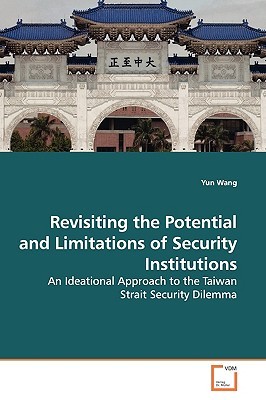
- We will send in 10–14 business days.
- Author: Yun Wang
- Publisher: VDM Verlag
- ISBN-10: 3639144627
- ISBN-13: 9783639144628
- Format: 15.2 x 22.9 x 0.9 cm, softcover
- Language: English
- SAVE -10% with code: EXTRA
Revisiting the Potential and Limitations of Security Institutions (e-book) (used book) | bookbook.eu
Reviews
Description
Current literature on institutionalism tends to promise that as the vigor and intensity of formal institutions increase, conflicting transnational relations will decrease. However, security hot spots like Taiwan Strait show that even though the rivals are notably integrated and institutionalized, political conflicts have not eased. Nevertheless, war is absent for half a century. A possible answer to this dilemma is recognizing that there is a tacit, informal, and fragile framework of international norms that works beyond "cheap talks." Tacit norms are essential for building political confidence before those who disagree can found a negotiation upon them. To identify this unspoken norm-building process, this book provides a dual- level analytical approach through ideational perspectives. This new approach highlights the critical effects of cognitive factors such as identity, ideology, and their local host, political groups in the institutionalization process. The book offers a fresh comparative view of security studies and it endeavors to inspire new ways of thinking about conflict resolution and peacemaking policies.
EXTRA 10 % discount with code: EXTRA
The promotion ends in 20d.17:40:14
The discount code is valid when purchasing from 10 €. Discounts do not stack.
- Author: Yun Wang
- Publisher: VDM Verlag
- ISBN-10: 3639144627
- ISBN-13: 9783639144628
- Format: 15.2 x 22.9 x 0.9 cm, softcover
- Language: English English
Current literature on institutionalism tends to promise that as the vigor and intensity of formal institutions increase, conflicting transnational relations will decrease. However, security hot spots like Taiwan Strait show that even though the rivals are notably integrated and institutionalized, political conflicts have not eased. Nevertheless, war is absent for half a century. A possible answer to this dilemma is recognizing that there is a tacit, informal, and fragile framework of international norms that works beyond "cheap talks." Tacit norms are essential for building political confidence before those who disagree can found a negotiation upon them. To identify this unspoken norm-building process, this book provides a dual- level analytical approach through ideational perspectives. This new approach highlights the critical effects of cognitive factors such as identity, ideology, and their local host, political groups in the institutionalization process. The book offers a fresh comparative view of security studies and it endeavors to inspire new ways of thinking about conflict resolution and peacemaking policies.


Reviews